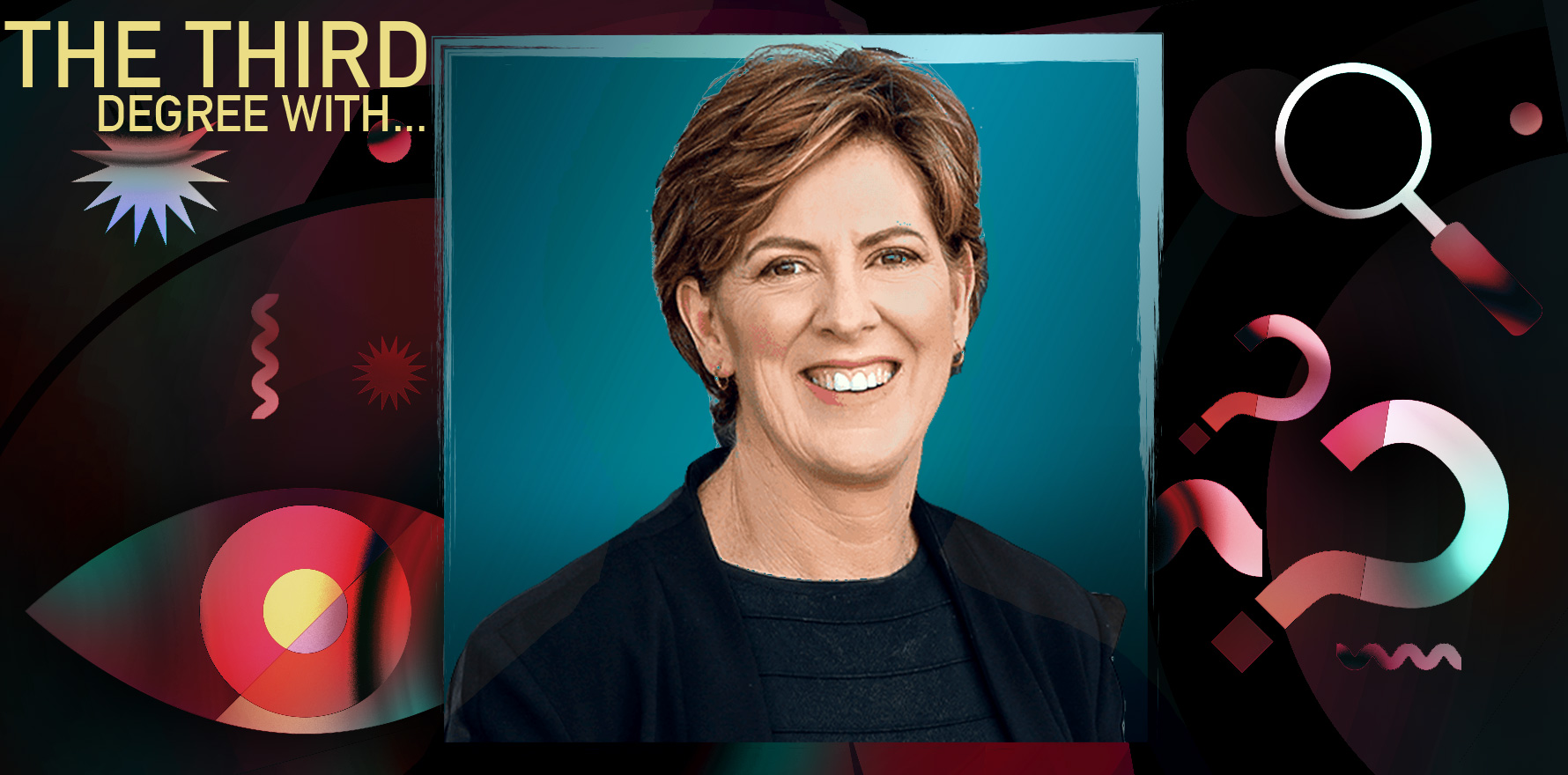Dervla Loughnane provides mental health care via text, reaching the infamous ‘missing middle’. But the government isn’t interested in what they can learn from her.
Seven years ago, Dervla Loughnane was called to the scene of a tragedy – a 17-year-old boy had taken his own life.
She checked his phone only to discover that the young man had not made any attempt to reach out for help.
That nightmare scenario led her to start a business – Virtual Psychologist – that is still going strong today.
The bad news is Ms Loughnane has little confidence that her business, and the model of access to psychology that it employs, will survive another 12 months.
The Department of Health and Aged Care and its $588 million investment in its “low intensity digital mental health service”, she says, isn’t interested in talking to small operators like her who have been providing care successfully for years.
And eventually, she believes, Virtual Psychologist will be squeezed out of the market by the big players in the sector.
Tell us about Virtual Psychologist
That young man’s situation changed things for me.
I asked myself, what was so confronting for him that he couldn’t reach out for help – would a simple text have saved his life?
I was so moved by the death of this young man, I went back to work that day and quit my job.
I saw people on trains and at airports and all the rest of it – just texting, no one talking. And I knew a lot of men weren’t engaging with me [as a psychologist], a lot of youth weren’t engaging with me.
I wondered, should we be doing another channel that’s less confronting and less embarrassing?
So, we started off with text. I literally just said, “if it’s easier for you, and I can make a difference and save a life, just text me”.
How has it grown since then?
We’ve also branched out to video and audio, to recorded messages and to recorded video.
So, if you’re a new mum and you’re breastfeeding at 1am, if you want to send a text, if you want to do a recorded message for us or a recorded video, we are the channel of choice.
Whatever channel you choose, you can engage with us, and we also do it through QR codes, so you don’t have to remember numbers or anything. You’ll come through to us.
We’ve also developed a self-service so if you don’t want to talk to anyone while making your appointment, if you want to read about which therapist you really want, but you don’t want to get embarrassed by asking, it’s all self-service oriented.
It’s about decreasing the barriers and making mental health as accessible as possible.
What’s the evidence that counselling by text can actually do any good?
We’ve collected a lot of evidence.
Starting off in rural and remote communities, we asked the following question: if text counselling or digital counselling had not been available, would you have reached out for any mental health support?
And in the rural and remote communities, which we sorted out by postcode, 67% said no, they wouldn’t have reached out for any mental health support.
And we’ve just done a pilot for new mothers with children aged newborn to 12 years old – people who are worried about harming their children, maybe have attachment issues, are really stigmatised.
Eighty-seven percent of those new mothers from these little towns said without our digital services they would never have been open and honest and reached out to get mental health support.
Although some consider face-to-face is the gold standard, there’s a lot of stigma, a lot of embarrassment and a lot feelings of confrontation to actually engage in that.
There’s a lot of evidence that people prefer less confronting, more engaging, less embarrassing forms of connection.
Even if there is a psychologist available, what we’re finding is the locals don’t want to be seen with their car parked outside the mental health service. It’s really stigmatised.
We offer services to the youth in rural and remote communities and we’re amazed at how many are engaging with us, saying “I don’t want to use the local service. You’re digital and you will never meet me. I want to use you”.
We’ve never sought investment. No magical government person has ever come to us with a huge amount of money to set anything up.
There’s a lot to be said for digital but I still believe in human-centred service delivery. AI is fantastic but people still want a human to talk to, with empathy and cultural relevance.
How big is your workforce?
We have 14 staff. And we also subcontract, so when the supply and demand [calls for it] we have access to over 250 social workers and psychologists.
We just advertised for new staff and we got 118 applicants. So it just goes to show that with this kind of digital service offering, you can get staff. Lots of people are saying we need AI because we can’t get the staff. That’s not true. There is staff out there.
What’s the continuity of care like with your model?
We do a brief solution-focused therapy. We do six to 12 sessions, but it’s with the same therapist, unless you choose to change. The patient can organise that themselves via the website, via self-service.
If you feel too embarrassed to say this isn’t working for me, not a problem. Just pop on and just change your therapist, or you can simply send a text message and say, you know, it’s not working for me. It’s really non-confronting.
Do you have the ability to get somebody to go intervene physically, if needed?
We work closely with the police and ambulance like any psychologist would.
The great thing with texting is obviously no-one can block their number when they text us, so we’ve always got the number. So with the police, if you’re going to do triangulation, we’ve always got the number.
So, it’s not dissimilar to working as a psychologist in private practice. We still have the same clinical protocols.
How is Virtual Psychologist funded?
We work with primary health networks, and we charge the PHNs for a certain amount of sessions available.
We’ll say to them, you want 40 hours available this week, we’ll charge you for 40 hours. If only five hours are used, that’s up to them. Most of the time though, we run at 100% capacity.
The demand for mental health is so high, we can’t keep up with the demand.
So, money’s no barrier to somebody who needs some help?
I was so sick of these barriers.
People needed to get a mental healthcare plan, go to a doctor, try to find a psychologist.
I was like, no, no. How do we drop all barriers? What is the quickest way when you need someone in moments that matter? How could that young kid that took his own life – how could he have reached out and got the help he needed?
And that’s what Virtual Psychologist is about – being there in moments that matter.
Related
There’s a lot of government money being poured into digital mental health
There certainly is. But, unfortunately, it’ll go to the big players.
They’ll generate a whole heap of money for someone else to build a platform that we’ve already built, to pilot something that we’ve already done for eight years.
They’re bringing in a consultant to tell you how. They’re doing it already. That’s the $588 million that they’re spending on it.
And that’s exactly what we’re doing already.
We won’t get a say, though, because we’re too small to be considered. No one will look at the fact that we’ve already built a global platform.
That must be frustrating
Yes, but I realise that there’s not a lot that I can do about it.
You know, I see all the huge amounts of money and the absolute waste that goes into funding some company to do something that we did on a shoestring, to never look at startups and the innovation sector, to just churn out the usual rubbish.
I get frustrated from that point of view, because the reality is I can see us getting pushed out.
But you’re reaching the infamous ‘missing middle’
We are. We’re getting the missing middle, those people that don’t go to a doctor and get that mental health care plan.
We’ve had men calling us from their tractors, men from milking sheds engaging in our service, the farm kid who has a sexual identity issue and is too scared to tell his dad. The men, the youth, who just aren’t using all the money that’s being poured into headspace, Orygen and Black Dog.
I wish government would take the smaller companies more seriously and stop funding the boys’ club.
But I think in 12 months’ time I’ll be looking for a job, to be honest, because the smaller players will need to leave the market.
What keeps you awake at night?
We’re not huge. We’re not headspace, we’re not Beyond Blue, whatever, but for the little starfish that we threw back into the ocean, we made a difference.
I find my work very rewarding. I find the staff that we’ve got to be exceptional. I love the innovation that we offer. I get excited about always thinking about how can we offer a better customer experience.
So, I lie awake at night wondering how we can be better.





